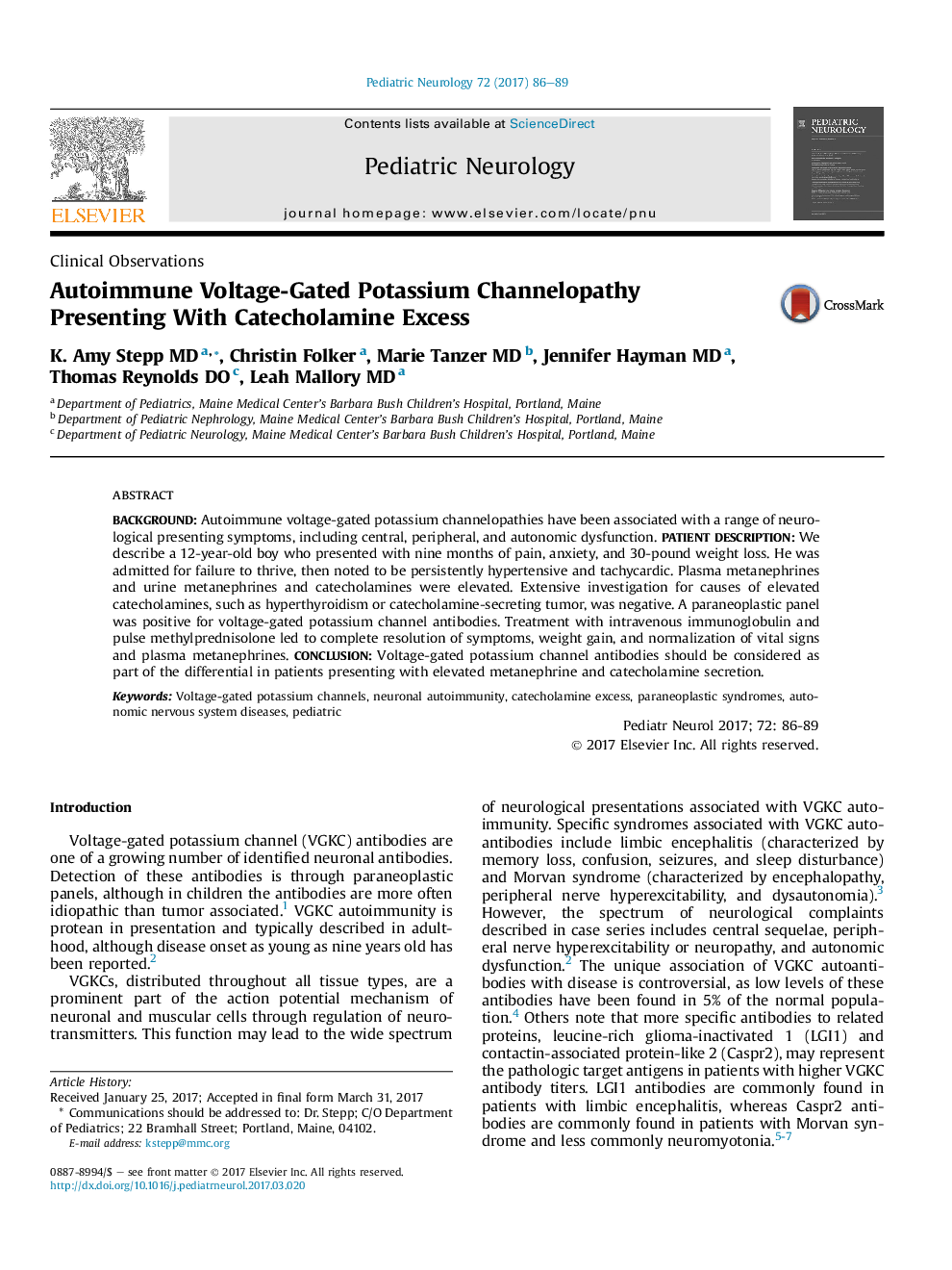| Article ID | Journal | Published Year | Pages | File Type |
|---|---|---|---|---|
| 5633102 | Pediatric Neurology | 2017 | 4 Pages |
BackgroundAutoimmune voltage-gated potassium channelopathies have been associated with a range of neurological presenting symptoms, including central, peripheral, and autonomic dysfunction.Patient DescriptionWe describe a 12-year-old boy who presented with nine months of pain, anxiety, and 30-pound weight loss. He was admitted for failure to thrive, then noted to be persistently hypertensive and tachycardic. Plasma metanephrines and urine metanephrines and catecholamines were elevated. Extensive investigation for causes of elevated catecholamines, such as hyperthyroidism or catecholamine-secreting tumor, was negative. A paraneoplastic panel was positive for voltage-gated potassium channel antibodies. Treatment with intravenous immunoglobulin and pulse methylprednisolone led to complete resolution of symptoms, weight gain, and normalization of vital signs and plasma metanephrines.ConclusionVoltage-gated potassium channel antibodies should be considered as part of the differential in patients presenting with elevated metanephrine and catecholamine secretion.
